By: Melissa Issa-Boubé
Comments of my skin tone filled my childhood and adulthood. When I was born, on my birth certificate, the nurse labeled my race as “chocolate,” a tag that remains today. Catcalling men yell, “Hey sweet chocolate!” and women often ask for my skin care regimen.
I have heard people say, “Your skin tone is gorgeous” countless times. Aside from the compliments, I also experienced taunting in school. “Burnt” was an adjective used to describe the hue of my skin.
Despite the persistent discrimination against individuals with dark skin, defined as colorism, not every person with darker skin feels unattractive and wishes to be lighter. Although teasing did not escape me, my overall experience as a dark woman was great. I strutted through life with confidence and purpose while ignoring the self-haters who vowed to take me down.
Every now and again, I came across ignorant internet posts that perpetuated colorism. One day on Twitter, I scrolled across an illustration with four women. I found myself stumped, because I did not understand why the artist chose to group these women together.
I retweeted the post asking someone to explain. A poor, wayward soul responded to my tweet explaining the collection of ill-fit pictures:
“Three was dark.”
According to the tweeter, these photos meshed well because of the women’s apparent imperfections. He continued to dig his hole deeper.
The tweeter was trying to explain that despite what society constitutes as beautiful, these women are beautiful too.
“Too” on the end assumes that I, or any woman with the depicted “imperfections,” believe otherwise. People who do not want to be dark –or have stretch marks, large areolas, etc. – assume other people do not want to be dark either. They also assume that everyone views these characteristics as “imperfections”. Thus the creation of these “You are beautiful too” posts. Although the illustration did not have the word “too,” the tweeter interpreted the pictures to mean that, as he explained. There is a stark difference between “you are beautiful” and “you are beautiful too.” I disliked feeling that people automatically supposed I did not wish to be dark skinned. This presumption further fuels colorism and the assumed preference for lighter skin.
The collage implies that, in terms of beauty, losing a breast is comparable to having dark skin. I want to stress that there is nothing wrong with having a mastectomy, surgery, or medical condition. However, as a dark-skinned woman, I saw the post comparing dark skin to having cancer. Cancer is a disease, having dark skin is not. Although some people may associate blackness/deep complexion with negativity and imperfection, I do not.
I never have. I never will.
I am not the only melanin-rich dark skinned beauty to support these sentiments. Unfortunately, however, I know plenty of women that hate their skin tone and themselves.
For example, some of my peers evade darker men to avoid having “dark skinned nappy headed babies.” My college roommate often stated that she only dates dark skinned men that are very attractive, but a lighter skinned man would not need to be as good-looking. In the documentary, Dark Girls by Duke and Berry, a young woman remembers her mother bragging about her beauty to her aunt. At the end of the string of compliments, she hears her mother say, “Can you imagine if only she was a little lighter.” Picture growing up knowing that your own mother, who you get half your genes from, wishes you were lighter.
Observing these examples of colorism in the Black community was painful. I felt sorry for the young girls who grew up begging their mothers to bleach their skin. I felt sorry for my roommate who used lightening products and my classmates that dodged the sun like the plague.
My observations raised various questions. Why does everyone else prefer lighter skin to darker skin? Why did I love my skin tone even though my friends hated theirs? What factors shaped my positive experience as a dark skinned woman?
My sister, Samira, and I had a self-loving mother. Her self-love was important, because it shaped how she saw us, her dark skinned daughters. Our upbringing is the first factor that molded our outlook on dark skin and ultimately our positive experience as dark women. Since day one, my mother told Samira and me that we were beautiful. She greeted us, “Hey pretty girls,” and she referred to us as, “My beautiful daughters.” She also mixed comments about our beauty with other praises. She would say, “My kids are so smart.” My mother talked about us positively without any conditions or caveats. She never imagined, “If only they were lighter.”
To some parents this praise may seem excessive and a sure way to create spoiled brats. However, I argue that in an anti-black patriarchal society that will constantly attempt to tear down a Black woman, this initial praise is vital for development of self-love. As a child, I was very outspoken, precocious, and proud. I was not afraid to tell my white second grade teacher that everyone originated from Africa. She found my claim absurd and said, “Not everyone believes that, Melissa.” I shrugged and sashayed to the playground. That is when the carefree Black girl was born.
I was never afraid to ask “why” and contest statements. Most importantly, I was confident. My mother thought I was smart, so I thought I was smart. My self-esteem rose so high that I felt like a handpicked flower from the most precious garden in the world. My mom made me feel beautiful, not because I was cute and looked nice in frilly dresses. She stressed that my dark skin and blackness is part of my beauty.
She would say, “That Black girl is pretty, just like you.” Looking back on these moments, I realized the extent of the power of language. At an early age, I learned to associate blackness with goodness, elegance, and intelligence.
I learned to associate dark skin with beauty, because I was beautiful and dark.
Granted there were many peers and adults who disagreed. Though I attended predominantly white schools, I distinctly recall only Black students teasing me. The first incidence I remember occurred in 3rd grade when a girl called me a “tar baby” during recess. I did not understand the joke. Why is “tar” funny? I remember the other students laughing, but I did not understand why. She was Black too. I told my mom what happened, and she simply told me to remember that, “no one is better than you.” That is all she said. At the time, I was too young to understand the history of colorism or why some Black kids preferred to identify as “brown” or “caramel” instead of Black.
The taunts persisted through grade school. Originating from other Black students and alluding to the deep richness of my skin tone. People placed their arms next to mine to compare who was lighter. Others carried sunscreen and umbrellas year-round to avoid becoming darker. My mom’s words of praise acted like a mirror that ricocheted any negativity into the abyss.
In another occurrence, I was in high school. I remember discussing the nice Georgia weather with some friends in the courtyard. I shared that I like to sit outside and feel the heat of the sun on my skin. One girl interjected, “Why? You are already burnt.” The others laughed and she smiled. If she said something bad about me, I could have retaliated and said something bad about her. However, she simply stated a fact. I do have dark skin, which is not a bad trait or quality.
My mom did not raise me to think about dark skin in that way. Therefore, I did not need to react. I refused to communicate that dark skin is negative by retaliating and making fun of her. Perhaps, if she knew that I loved being dark, then maybe, she would no longer use those comments to try insulting other dark skinned people.
I simply told her, “thank you” and continued my conversation. This tactic seemed to work. I remained confident and remembered the comforting words of my mother. Some people found me “stuck up” and arrogant, because their teasing did not affect me as intended. I heard comments such as, “She think she’s all that and a bag of chips” or “She thinks she’s better than everyone.” Nonetheless, I kept my head high. Taunts were like throwing pebbles in the ocean that produce small ripples, and then dissipate forever.
The first factor that nuanced my experience as a dark skinned girl is my positive upbringing. The second factor is my hair texture. In middle school, when my mom stopped braiding my hair into four plaits, the questions started pouring in. In my family, we have pencil sized “S” shaped curls that coil when wet. People frequently asked, “Are y’all mixed,” “Where are your parents really from,” and “Are both your parents Black?” Women in grocery stores felt entitled to touch my hair without permission. “How do you get your hair like that?” they asked. I laughed at their looks of disbelief when I responded, “water.” I even remember asking my mom if we were mixed. She quickly said, “No” and explained that our hair texture is simply a feature of people who come from the Sahel and countries such as Niger, where we originate.
Now, imagine my state of confusion. Initially, I was teased for being, “too Black.” Now, others thought I was not black enough. Many ignorantly stated, “You can’t be fully Black, you have good hair.” Once again, I noticed the power of language. This statement poses “Black” in contrast with “good” and creates a dichotomy that makes blackness the opposite of good. I have heard people say, “You’re dark, but you have curly hair.” But? Does curly hair act as a buffer for my blackness? My dark skin seemed more acceptable, because some people did not think I was fully Black. In their eyes, my hair texture regained the “pretty points” I lost for being dark. I hated this. I did not like knowing that my hair shaped my positive experience as dark skinned woman. It still showed the omnipresent anti-Black colonial ideals of beauty.
Understanding this fixation with “good hair” and its origin means that I must remain cognizant of the fact that my experience as a dark woman has been different from many others. I am not ignorant of the importance of hair in the Black community. However, I must stress that the positive words from my mother about my dark skin is the true basis of my high self-esteem and self-love. She laid the foundation for a fierce confidence that led me to believe I can face any challenge. I modeled, designed clothes, and even began my own clothing line, Mena Mode. I have never felt discouraged or hindered by my skin tone, and I owe this confidence to my mother.
So, where can I situate myself in today’s society? The people who used to make fun of my skin tone are now posting on Instagram with the caption #melaninmonday. The latest stories of police brutality and mass persecution of Blacks has led a movement to appreciate blackness, dark skin, and melanin. I hope this shift will continue into the future and shape the language used to describe blackness and dark skin. Furthermore, parents must understand that the support for the success of Black women is limited. That support has to originate at home.
My mom made me feel good about myself before others tried to tear me down. The teasing stung, but I never wanted to have lighter skin. Her words made me strong, confident, and shaped me to be the unapologetic woman I am today. I love my dark skin, and I will teach other girls to love theirs.
—————————————————————————————
Melissa is pursuing a master’s degree in biology at Georgia State. She can be found in the lab, or sewing. Find her website at www.menamode.com. Follow her on Instagram @melissa.menamode.

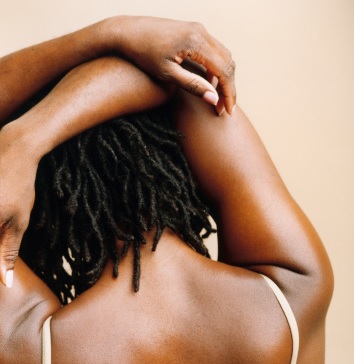

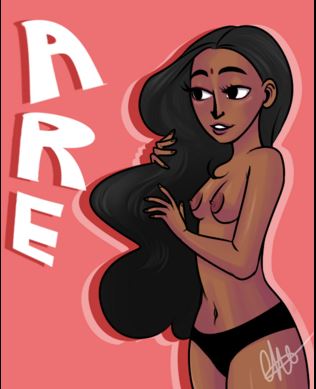
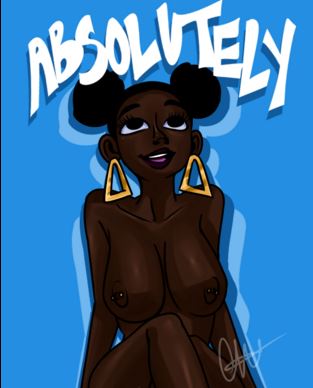





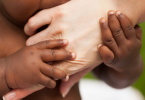

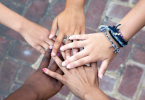
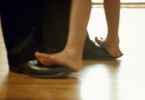


#melaninforever. People do not understand how black skin is beautiful, a lot of my friends told me that i had a beautiful skin tone because i was lighter than them and i always remember that i told them that ” the most beautiful skin tone that i had ever seen is my sisters, their skin tone is just homogen everywhere and so pretty’ and i always pick up my phone and show them how beautiful you guys are. ” they are dark/black if u want, but they are so much more beautiful than u and their hair texture is way… Read more »
Very nice perspective. Well written and a nice read!
Thank you so much for sharing this! You put into words what a lot of women didn’t have the courage to say.
Every mom who has a dark baby should remember that they should tell him/her how beautiful he/she is everyday. As a teacher in a predominantly Black community I see how the darker skinned kids lack self-esteem because the lighter skinned kids are always more popular. This is sad, but this is true.
Loved reading this!